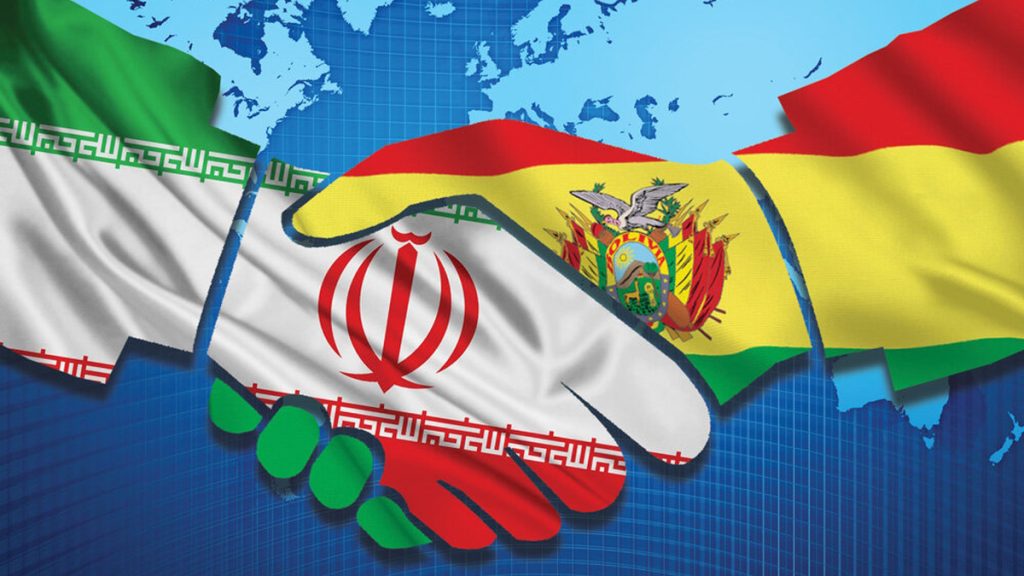Geopolitics is a field rife with geopolitical intrigue and the most unlikely of partnerships. After toppling its imperial predecessor in 1979, the Islamic Republic of Iran is among the most polarizing of international actors on the world stage. Despite being isolated by the Collective West, Iran has been able to forge ahead with its unique brand of foreign policy that has relied on building proxy forces across the Middle East — Iraq, Lebanon, & Syria — while also strengthening ties with countries in the Global South.
One of the lesser discussed aspects of Iranian foreign policy has been its outreach in Latin America. Former United States Marine and current national security expert Joseph M. Humire has been one of the most prominent observers of this trend as evidenced by his authorship of Iran’s Strategic Penetration of Latin America, which details the Middle Eastern country’s growing influence in the region.
To this day, Humire details how Iran has continued making inroads in Latin America. On April 5, 2023, the national security expert sounded the alarms on Twitter about Bolivia’s recent refusal to join the United Nations Human Rights Council (UNHRC) in condemning Iran’s list of alleged human rights abuses.
Humire tweeted, “Iran watchers need to start paying attention to Bolivia… I’ve argued that outside of Venezuela, Bolivia is and has been one of the top foreign policy priorities of Iran in LatAm. And based on this UN vote, it seems that Tehran’s had success in La Paz.”
Bolivia joined the likes of Bangladesh, China, Cuba, Eritrea, Kazakhstan, Pakistan, and Vietnam in voting “NO” to the UNHRC’s condemnation of Iran. Other prominent countries that abstained from voting were Algeria, Malaysia, Qatar, South Africa, and Sudan.
Bolivia’s relationship with Iran is intriguing to say the least. The two countries established full diplomatic relations in 2007 a year after Evo Morales assumed the presidency. Since then, the countries’ relations have gradually strengthened. In 2010, Morales paid a visit to Iran in efforts to promote investment in Bolivia, and “expand ties, promote investments, and further enhance cooperation.”
On September 20, 2022, at the 77th session of the UN General Assembly in New York, Iranian President Ebrahim Raisi and Bolivian President Evo Morales held a meeting to underscore the strong bond between Iran and Bolivia. Raisi said the following about Bolivian-Iranian relations:
“Relations between Iran and Bolivia are friendly and developing. Ties between the two countries are not ordinary political relations and must be developed daily.”
\When mass protests broke out in September 22 against the Iranian government after the death of a Kurdish woman Mahsa Amini, who was detained by government authorities, Bolivia’s ambassador to Iran, Romina Pérez, loudly condemned the protests once they turned violent. She proclaimed that the protests were “orchestrated by British and American Zionists” and stressed that the Bolivian government “condemns the disturbances in Iran perpetrated by British and American Zionists.” Pérez continued: “We are sure these problems will be resolved with the understanding of the dear leader of Iran [Supreme Leader Ayatollah Ali Khamenei].”
To intensify ties between Bolivia, its anti-American allies in the Western Hemisphere, and Iran, Morales’ government established an “Anti-Imperialist School” for the armed forces that has featured agents and instructors from Cuba, Iran, and Venezuela and Russia.
To the naked eye, Iran’s tight-knit relationship with Bolivia will seem like a peculiarity. But from a geopolitical perspective it makes sense. Iran is effectively being contained by the US’s military presence in the Middle East and the Western-led sanctions regime launched against it.
In response, Iran has slowly built a presence in the Middle East by using its Hezbollah proxies to blend in with the large Lebanese diaspora across the region, especially in countries such as Argentina and Venezuela. In the latter case, Iran has forged strong, conventional state ties with Venezuela on areas of defense and economic cooperation.
In a multipolar environment where all of the US’s geopolitical encroachments will be met with some form of pushback, one can expect Iran to poke the US in the eye by setting up embassies and finalizing bilateral agreements with Latin American nations that have an axe to grind with the colossus in the North.
There’s no telling how deep Iran’s penetration of Latin America could go. With the US national security state fixated on containing China and Russia, trying to confront Iran may be a bridge too far for the over-extended superpower. One thing is clear though: Washington will be sweating bullets should Iran continue expanding its influence in Latin America.
That’s how the cookie will continue to crumble in the multipolar world.
